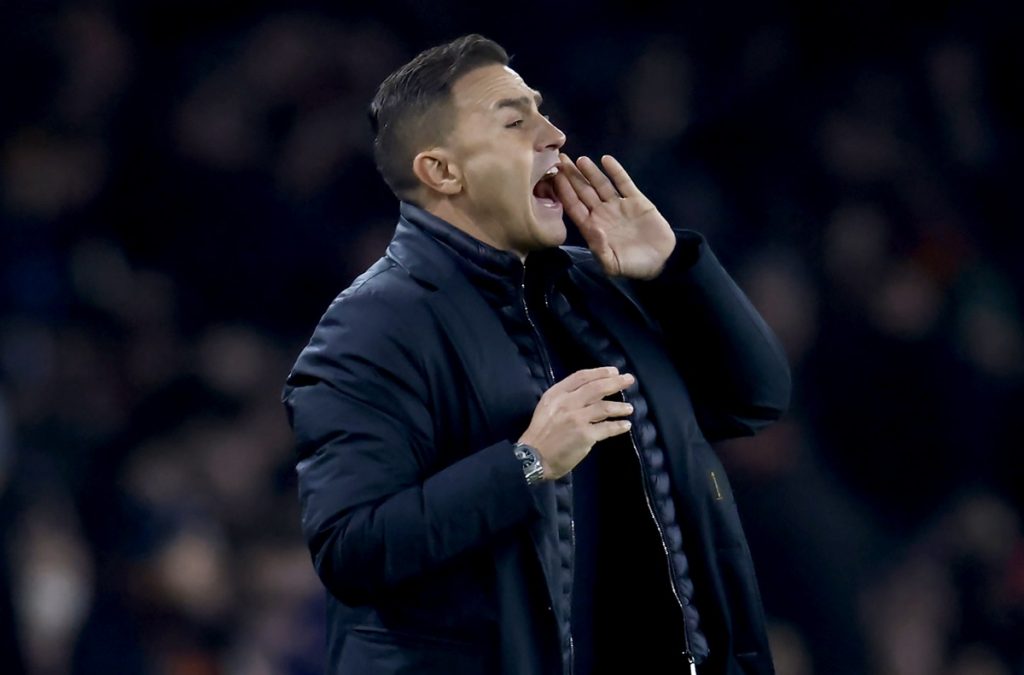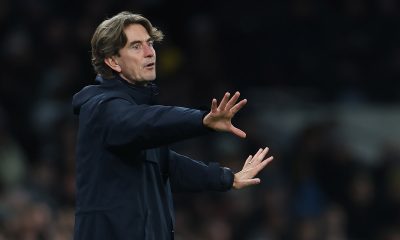
Erling Haaland’s Norway maintained their perfect World Cup qualifying record on Sunday, thrashing Italy 4-1 at the San Siro to book their first World Cup appearance in 27 years.
There’s probably a celebratory piece to be written about Norway’s current golden period (I might just do that that some point). But the real story surrounds Italy and their recent footballing demise. Sure, they had little to no chance of qualification going into Sunday’s clash, with Haaland’s supernatural feats making Norway’s goal-difference all but insurmountable. But the way they capitulated on home soil doesn’t auger well for their hopes of surviving March’s mercenary playoffs. How have the famed Azzurri gone from winning their 4th World Cup trophy in 2006 to potentially missing out on a 3rd successive tournament?
Financial realities
I think that Italy’s current national footballing malaise can be directly traced back to Serie A’s growing irrelevance on the European stage. Italy was once the primo destination for the footballing elite, with eight European Cup winners coming between 1985-2010 (there have been none since). Italy was the financial epicentre of the footballing world, with Serie A breaking the world record transfer record seven times between 1986 and 2000. Here’s a fun fact: late Chelsea striker Gianluca Viali was once the world’s most expensive player! That’s a pub trivia question that I would never have known the answer to. In any event, all that elite competition naturally bled into the Italian national setup. But the financial warning signs were there long before Jose Mourinho took Inter to glory in 2010.
Shifting tides
The expanding financial clout of the Premier League was a huge factor in Italy’s diminishing footballing footprint. The broadcasting rights associated with British football led to a huge influx of cash and more bargaining power on the world stage. Italy was suddenly on the backfoot, with major worldwide talent siphoned from the league. Up-and-coming Italian youth products were rubbing shoulders with increasingly less esteemed company. Added to that, South American players started to look at Spain as the promised land, with the Italian language barrier becoming more of a sticking point with decreased financial leverage. England and Spain quickly became the centres of European footballing power. The pandemic hit the Italian league harder than most, exacerbating all these preexisting issues. According to Forbes’ annual financial inquiries, Serie A is the only top European league without a side in the world’s top-ten richest clubs (Juventus are 11th). What’s more damning, Inter Miami currently edge Inter Milan in the standings (it’s depressing when the cosplay Inter has more financial clout than the real one).
Good old-fashioned German ingenuity
The German footballing federation was wise to this inevitable brain-drain and showed admirable initiative, stipulating that all clubs in the top two tiers of football have youth academies. It was a genius insurance policy, ensuring that German sides would have readymade homegrown talent to replace departing stars. This lead to a conveyor belt of young German talent that has filtered its way into top European sides (look at Lennart Karl at Bayern). Italy appeared to take the opposite approach, attempting to recapture former glories with silly marquee transfers, buying slightly over-the-hill stars while deemphasizing youth development.
The times, they are a changing
I also think that the natural evolution of the game passed Italy by. Italy’s international reputation was forged out of defensive rigidity and flashes of individual brilliance. Names like Nesta, Maldini and Cannavaro were celebrated as loudly- if not more – than their attacking counterparts. It’s analogous to the way Northen Hemisphere rugby celebrates penalties with the same verve as tries: it’s just a cultural thing. But football has evolved into a more dynamic beast, with players fluidly interchanging positions. Guardiola’s tika-taka revolution was a deathblow to old-school Italian pragmatism (Mourinho’s triumph with Inter Milan being an outlier). Even Mancini’s curious Euros win was achieved through more expansive means.
Innovation is the way forward
With a declining footballing identity, Italy would do well to embrace innovation. Just look at what Gasperini did with limited resources at Atalanta. The tactically astute manager created arguably the most exciting side in European despite a serious lack of resources, championing youth development. I feel like Napoli’s 2024/2025 title run felt like a step backwards (and I mean no disrespect to their achievements). They played in a medium-low block and never pressed relentlessly, looking instead to hit teams with swift, efficient counterattacks. That model is just not going to cut it at the top-table of European football (just look at what PSV did to them a few weeks back). Seriously, can you imagine Liverpool or Barca losing 6-2 to PSV Eindhoven right now?
Don’t lose faith in Gattuso
Weirdly enough, I think that Gennaro Gatuso could still be the right man for the job. A pitbull in midfield, Gattuso hasn’t exactly dominated on the managerial front. He managed his beloved AC Milan and then went on to win the Coppa Italia with Napoli. But he was fired from Fiorentina without managing a game and had brief, unsuccessful spells at Valencia and Marseille. His most recent post leading into the Italian gig was as head coach of Croatian outfit Hajduk Split. Despite all of that, Gattuso instilled some self-belief in the Azzurri, winning his first five matches in flamboyant, free-scoring fashion (they netted 18 goals). They just had too much to do against Norway and forced the pace, leaving themselves open to incisive counterattacks.
I think Gattuso’s refreshingly open style of play gives them a shot in March’s qualifiers. Thursday sees the draw for the World Cup knockout matches. It is a brutal system, with 16 teams split into groups of four. From there it is simple, teams need to win two games in five days to secure qualification. I don’t think it’s time for Italy to be shy and retreat into a previous generation’s playbook.
























